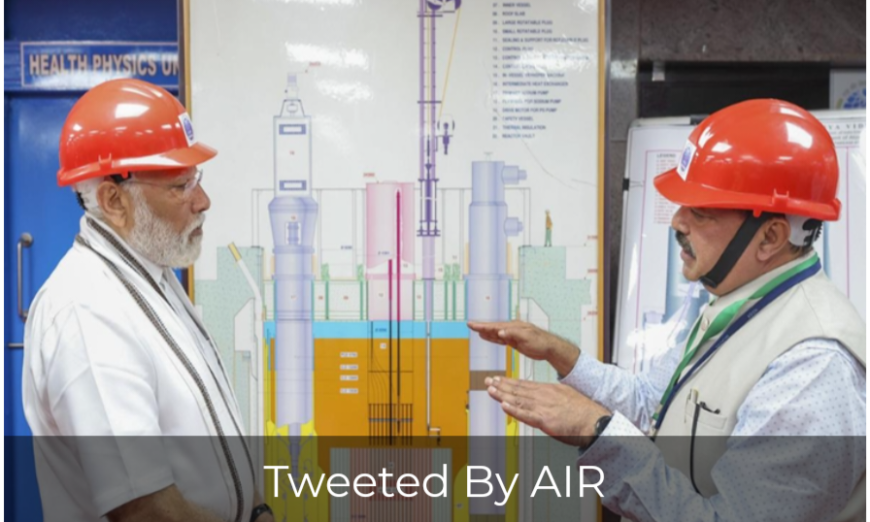Updated, March 4, 2024. 8.50 PM.
In a historic milestone marking entry into the vital second stage of India’s three stage nuclear programme, Prime Minister Narendra Modi witnessed today, commencement of “Core Loading” at India’s first indigenous Prototype Fast Breeder Reactor (PFBR) (500 MWe) at Kalpakkam, Tamil Nadu. In line with the true spirit of Aatmanirbhar Bharat, PFBR has been fully designed and constructed indigenously by BHAVINI with significant contribution from more than 200 Indian industries including MSMEs. Once commissioned, India will only be the second country after Russia to have commercial operating Fast Breeder Reactor.
The PFBR reactor core consists of control sub-assemblies, blanket subassemblies and fuel sub-assemblies. With minimised nuclear waste generated from the reactor and advanced safety features, FBRs will provide a safe, efficient and clean source of energy and contribute to the goal of net zero.
In India’s three stages of the Nuclear power programme, BHAVINI paves the way as a forerunner in the second stage by building a 500 MWe PFBR. It is entrusted with a mandate to construct, commission and operate the Fast Breeder Reactors to provide energy security for the nation in the long run.
In terms of safety, the PFBR is an advanced third generation reactor with inherent passive safety features ensuring a prompt and safe shut down of the plant in the event of an emergency. Since it uses the spent fuel from the first stage, it also offers great advantage in terms of significant reduction in nuclear waste generated, thereby avoiding the need for large geological disposal facilities.
The growth of the Indian nuclear power program,e is imperative to meet the twin goals of energy security and sustainable development. As a responsible nuclear power with advanced technology, India remains committed to expand peaceful applications of nuclear technology, both in power and non-power sector, while ensuring the security of nuclear and radiological materials.

